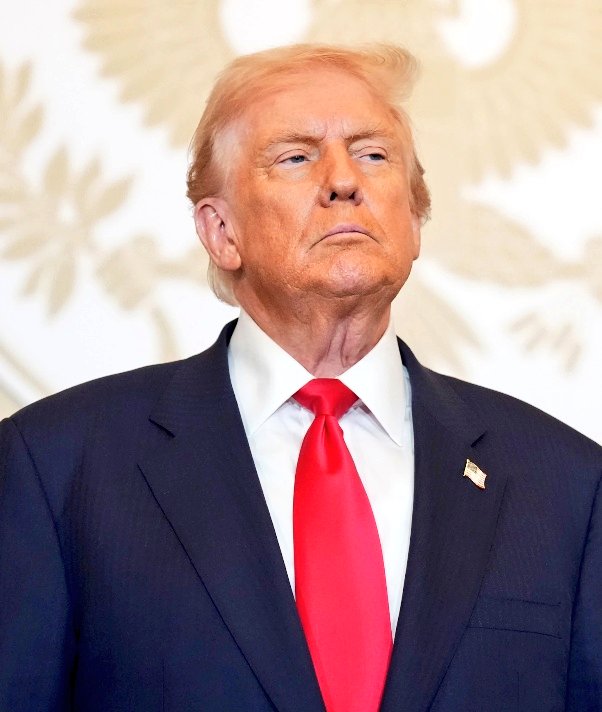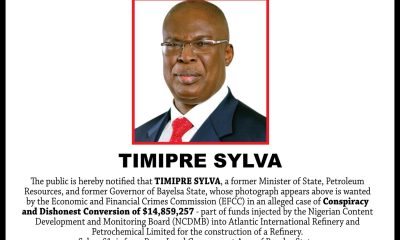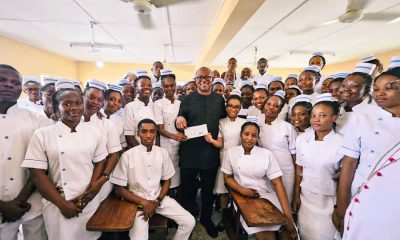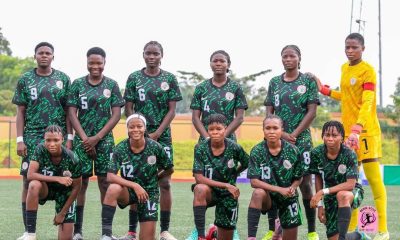

News
Middle East African Nations name squads for rugby league championship
NATIONS NAME TRAIN ON SQUADS
All four nations have announced their initial train-on squads for the second Middle East Africa Championship, to be held at the Teslim Balogun Stadium in Lagos, Nigeria from 2-5 October.

Hosts Nigeria have opted for a 60-man party initially, including the likes of Canterbury Bulldog’s Jayden Okunbor, who has been named vice captain, young Leeds prop Muizz Mustapha who has impressed on loan at Newcastle Thunder, and Hull KR emerging talent Elliott Wallis.
Super League stars Tuoyo Egodo and Sadiq Adebiyi and established names Rob Worrincy, named as skipper, Will Sharp and Daniel Igbinedion are also included. They join local players from Eko Trinity, Kano Lions and Logos Haven, part of Nigeria’s eight-team domestic competition, which is set to kick off as a pre-cursor to the tournament.
NRL vice-president and general manager Ade Adebisi noted: “We have held a number of successful national training sessions in the capital and in the North of the country and look forward to being joined by stars from overseas. I’m excited to have reached another milestone on the targets we set at the beginning of this wonderful journey. Nigeria is blessed with so much raw talent and I can’t wait for the world to see what we eventually accomplish.”Okunbor said: “It is an absolute honour, that I will forever be proud of. Growing up never thinking Nigeria would ever have a national team and now to be named a vice captain means so much to me and my family.“To be a part of what could possibly be the beginning of something amazing also really excites me and I can’t wait to rip in with the boys.”
Nigeria will face Ghana in their opening match and captain of the Skolars club there, Riddick Alibah claimed: “Passion and discipline is what makes champions and is what we have. We are coming as the pride of the nation and we will leave as champions win or lose. This means more to us than just a tournament, it is a springboard for us and the region.”
The other debutants are Cameroon and Carol Manga, CRL’s general manager, noted: “Five men’s teams in Cameroon are currently in the middle of their club season and there is huge excitement at squad training.”Jean Marc Akoa Akoa of the Sahel club in Groua commented: “I am so happy to be shortlisted to the national rugby league team of Cameroon. This motivates me to work more and more, to be physically and technically at the level required by the staff to be selected.” They face previously dormant Morocco, whose president Yamina Abdesselem, said: “Our men’s national team will come mainly from the six-team domestic championship.
The tournament will give another dimension to the XIII Moroccan and contribute to the development of the sport in North Africa. The list of 30 of our players has been the subject of various selection stages, the last of which involving everyone, will take place from 26-30 September, south of Casablanca.” Skipper Souhail Ait Alla from the Gulmim Essalam club added: “It will be the third time I represent my country, against Lebanon in 2011 and the GB Student Pioneers two years later. We will try our best to be competitive, we know we are going to face great teams but our goal is to tell the world that Africa are coming – our Federation never gave up.” Remond Safi, the Tournament Director confirmed: “The domestic African clubs provide the majority of players to each national squad which is a major step forward for the region and justification for the tournament. It will be a wonderful spectacle in Lagos and everyone is looking forward to it”.
Cameroon Train On SquadDiryl Tchinda (Bandjoun Rl Douala), Armel Damdja, Bidjana Jean Claude, Nguele Hermand, Hamadou Moussa, Patrick Eugene Nkouak, Nanga Yannick Olama, Tsoungui Alphonse Olama, Lamere Mfochive Oudi, Yannick Noah Simon, (Bulls Rl Yaoundé), Tientcheu Nguekam Emmanuel, Moutcheu Jangue Raphael, Yohan C. Kwedi, (Gorila Rl Douala), Kallasi Nguiagueu Arnaud, Meli Arnaud Cyrille, Embella Mouhamed, Christian T. Pegou, (Guepard Rl Douala), Eyong Arno Bienvenue, Bekolo Elie, Watio Franck, Fabrice Yepmo Joufang, Fosso Ledoux, Arnaud Ndjeng, Chieyem Prince (Panda Rl Youndé), Ndifor Paul Atungsiri, Akoa Akoa Jean Marc, Ngoufack Geordane, Kuate Talom Steve (Rock Rl Douala), Aliou Garga, Malai Alban, (Sahel Rl Garoua)
Ghana Train On SquadMarcus Alexander Amate Neil, Albert Abeku Amonoo Nelson (Brixton Bulls Rlfc), Benjamin Anane, Kwabena Afful Cleland, Collins Kweku Ofosu, Desmond Atsu Geotrah, Nigel Nii Ampim Sackey, On Yelib Oliver Puman, (Bulls Rlfc – Ghana), Reece Connor Rance (Coventy Bears), Issac Akwasi Akuoko (Manly), Samuel A. Aboagye Sarpong, Darryl Amoatey, Nasiru Abdul Latif, Eric Tettegah, (Panthers Rlfc – Ghana), Calivinson Accorlor, Philip Asomani, John Bless Mensah, Enoch Abam Niikoi, Christian Fafa Okpattah, (Pirates Rlfc – Ghana), Alibah Riddick Nana Abrokwa, Richard Amevor, Isaac Jordan Annan, Elikem Koesi Asafo, Edward Danquah Donkor, Chris Da Gama, Michael Quatey, William Pearce Biney, (Skolars Rlfc – Ghana), Kwabena Afful Cleland (Unattached)
Morocco Train On SquadSouhail Ait Alla, Mouslim Ali, Boujoua Ayoub, Ahmed El Faiz, Brahim Aferhane, Ouhcham Mahdi (Association Marocaine Assalam Rugby Xiii) Mohssin Afouks, Zakaria Attarch, Khalid Azghikh, Moussa Bencharki, Ismail Edhouz, Raid El Fath, Mbark Hani, Yassin Oujbor, Marouane Mounwir, Chnikhl Youssef, (Association Black Eagles Rugby Xii) Ilias El Fezazi (Racing Club Baho Xiii), Iliass Laachiri (Lyon Villeurbanne Rugby Xiii), Amine Addaqqouni, Oussama El Abdioui, Amine Belaachj, Aissa El Hamdaoui, Soufiane Kissi, Ali Sambo, Bilal Zariouh (Nadour Arkmane Rugby Xiii) Naji Anas (Racing Club De Carpentras Du Comtat Xiii) Ismail Edhouz, Taleb Idriss, Jarif Lachen, Marouanne Mounwir, Yassin Oujbor, (South Lionsrugby Xiii), Badreddine Medkouri (Sporting Treiziste Toulonnais) Adam Ed Diche (Union Sportive Ferralaise Xiii).
Nigeria Train On SquadAlamin Ajelara, Azeez Ajelara, Benjamin Jegede, Jordan Adebumowa, Mathew Jegede, Micheal Worrincy, (Africa United Australia) Jayden Okunbor ( Canterbury Bulldogs) Tuoyo Egodo (Castleford Tigers) Daniel Igbinedion, Robert Worrincy, (Dewsbury Rams) Hsa Harrison, Nosakhare Agwoje, Oladele Abiodun, Emmanuel Ayewe, Eneji Michael Iyeshi, Francis Olatunbosun, Shittu Isiaka Eko Trinity) William Sharp (Halifax Rlfc England) Elliot Wallis (Hull Kingston Rovers England) Jude Abrakson, Alex Richard, Issa Omale, Obi Wilson, Gabriel John, Joshua Etim (Kano Gazelles) Samuel Akpabio, Christian Williams, Sani Mohammed, Ibrahim Suraju, Nuhu Ibrahim, Bashir Usman (Kano Lions)Prince Nwauzor, Kelechi Anozie, Shedrack Kalu, Sukirudeen Alameen, Buni Mba, Sodiq Sakariyau, Emmanuel Peter, Michael Clement, Izuchukwu Nwaire, Monday Samali, (Lagos Broncos) Jeremiah Peters, Azuka Kelvin, Stephen Kiki, Olisa Kelvin, John Precious, Eric Olualogbo, Daniel John, Prince Samuel, Ayo Johnson, Quadri Kareem, Mark Macaulay, (Lagos Haven) Muizz Mustapha (Leeds Rhinos England) Sadiq Adebiyi (London Broncos England) Jubril Olajide (Manchester Rangers England) Isah Lawal Saulawa (Northants Uni England) Matthew Komolafe (Parramatta Eels Australia) Godson Sado ( St Albans England) Boluaji Fagborun
Apple introduces the new iPhone 11
News
“I’m Ready to Work with President Tinubu” — Olisa Metuh

Former National Publicity Secretary of the Peoples Democratic Party (PDP), Chief Olisa Metuh, says he is now ready to work with President Asiwaju Bola Ahmed Tinubu, whom he described as one of the few people who stood by him during the darkest period of his life.
Speaking on Sunday during a thanksgiving service to mark his 60th birthday, Metuh recounted how the PDP a party he served for decades and even went to prison defending abandoned him when he needed them most.
Metuh revealed that during his legal ordeals, only President Bola Tinubu and Imo State Governor Hope Uzodinma reached out to him, offering comfort and support.
“My trial was one of the worst things that happened to me. The day I was convicted, I celebrated. In the middle of my problems, somebody I had criticised so much reached out to me,” he said.
According to Metuh, the then–opposition leader Tinubu sent former Speaker of the House of Representatives, Femi Gbajabiamila, to visit him, despite the fact that the PDP routinely targeted Tinubu with criticisms.
“All my life I gave it to the PDP… When I had problems, I did not see my party. I was in court with only my family,” he lamented.
He further disclosed that President Tinubu had invited him several times in the past to join the APC including after the 2015 elections but he refused due to his loyalty to the PDP. However, Metuh said he has now returned to active politics with a determination to assist the government in deepening democracy and resolving national challenges.
“I am trying to assist the President of the Federal Republic of Nigeria to deliver the dividends of democracy. I have seen the steps, I have seen the challenges, and as a patriotic Nigerian, I want to join hands in resolving those challenges,” he said.
Metuh declared that he would follow Governor Hope Uzodinma politically, adding that he still respected credible figures within the opposition such as Atiku Abubakar, Peter Obi, and David Mark.
He emphasized the need for a vibrant opposition to prevent Nigeria from becoming a one-party state, while pledging to be “a good voice on this side” as he re-engages in national politics.
The thanksgiving service was attended by prominent political figures including Governor Hope Uzodinma, former Senate President Anyim Pius Anyim, former governors Okezie Ikpeazu, Sam Egwu, Ikedi Ohakim, Senator Victor Umeh, Tony Nwoye, and former Imo State governor Emeka Ihedioha.
Follow BONA NAIJA for more
News
TotalEnergies Sells 40% Stake in Nigeria Offshore Oil Licences to Chevron

French energy major TotalEnergies has announced the sale of a 40% stake in its Nigerian offshore exploration licences to Star Deep Water Petroleum Limited, a subsidiary of U.S. oil giant Chevron.
In a statement released on Monday, TotalEnergies said the agreement covers its interests in two offshore blocks located in the West Delta basin, spanning roughly 2,000 square kilometres. The transaction is subject to regulatory approval.
Despite the sale, TotalEnergies will remain operator of the licences and retain a 40% stake, while South Atlantic Petroleum (SAPETRO) holds the remaining 20%.
“This new joint venture reinforces TotalEnergies’ global offshore exploration collaboration with Chevron,” the company said, noting that the partnership builds on its recent acquisition of shares in U.S. offshore exploration leases.
TotalEnergies’ Senior Vice-President for Exploration, Nicola Mavilla, described the venture as one that “aims at derisking and developing new opportunities in Nigeria, in line with the objectives of the country.”
The deal is expected to expand offshore exploration activity and deepen cooperation between both multinationals in one of Africa’s most significant oil-producing regions.
AFP
Follow BONA NAIJA for more
News
How Gunmen Abducted Pastor, Wife, and Worshippers from Kogi Church

Armed men stormed a Cherubim and Seraphim Church in Ejiba, Yagba West Local Government Area of Kogi State, abducting the pastor, popularly known as Orlando, his wife, and several worshippers during a Sunday service.
The attack, which happened in the early hours of Sunday, sent congregants fleeing in panic. Eyewitness Adegboyega Oguns, who was present during the incident, described the moment the gunmen burst into the church, forcing members to scamper for safety as chaos erupted inside the building. Videos shared on social media captured the scattered seats, damaged property, and smoke rising from the surrounding area.
“It’s a new Cherubim and Seraphim Church. The pastor popularly called Orlando and his wife, with some others, have been kidnapped,” Oguns wrote on the Egbe Mekun Parrot platform on Facebook. “It is serious, we all ran out of church.”
Local officials confirmed the attack, which has further heightened concerns about escalating insecurity in parts of Kogi State. Governor Ahmed Usman Ododo condemned the incident, deploying helicopters, anti-kidnapping operatives, security agents, and local vigilantes to begin an immediate search-and-rescue operation.
Commissioner for Information, Kingsley Fanwo, warned residents to remain vigilant amid fears that local informants may be aiding criminal groups. He advised churches and communities in vulnerable areas to temporarily suspend large gatherings until the security situation improves.
The attack in Ejiba comes barely 24 hours after terrorists struck along the Isanlu Makutu–Idofin corridor in Yagba East Local Government Area, leaving residents and travelers terrified. Eyewitnesses from Saturday’s incident said the attackers arrived without warning, forcing people to flee into the surrounding bushes.
As of the time of filing this report, the exact number of abducted victims from the church attack remains unconfirmed, with details still emerging. The incident has created palpable tension across nearby communities, with many residents remaining indoors and travelers diverting routes to avoid troubled areas.
Follow BONA NAIJA for more
News
Full List: President Tinubu nominates 32 ambassadors

STATEHOUSE PRESS RELEASE
President Tinubu nominates 32 additional ambassadors
President Bola Ahmed Tinubu has sent the names of 32 ambassadorial nominees to the Senate for confirmation, days after he sent the first batch of three names.
In two separate letters to the Senate President, Godswill Akpabio, President Tinubu asked the Senate to consider and confirm expeditiously 15 nominees as career ambassadors and 17 nominees as non-career ambassadors.
There are four women on the career ambassadors’ list and six women on the non-career ambassadors’ list.
Among the non-career ambassador designates are Barrister Ogbonnaya Kalu from Abia, a former presidential aide, Reno Omokri (Delta), former chairman of the Independent National Electoral Commission (INEC), Mahmud Yakubu, former Ekiti first lady, Erelu Angela Adebayo, and former Enugu governor, Ifeanyi Ugwuanyi.
Others are Tasiu Musa Maigari, the former speaker of the Katsina House of Assembly, Yakubu N. Gambo, a former Commissioner in Plateau State and former deputy executive secretary of the Universal Basic Education Commission (UBEC).
Professor Nora Ladi Daduut, a former senator from Plateau; Otunba Femi Pedro, a former deputy governor of Lagos State; Chief Femi Fani-Kayode, a former aviation minister from Osun State; and Barrister Nkechi Linda Ufochukwu from Anambra State are on the nomination list.
Also on the list are former First Lady of Oyo, Fatima Florence Ajimobi, former Lagos Commissioner, Lola Akande, former Adamawa Senator, Grace Bent, former governor of Abia, Victor Okezie Ikpeazu, Senator Jimoh Ibrahim, businessman, lawyer and Senator from Ondo State, and the former ambassador of Nigeria to the Holy See, Ambassador Paul Oga Adikwu from Benue State.
Among the nominees for career ambassador and high commissioner-designates are: Enebechi Monica Okwuchukwu (Abia), Yakubu Nyaku Danladi(Taraba), Miamuna Ibrahim Besto(Adamawa), Musa Musa Abubakar (Kebbi), Syndoph Paebi Endoni(Bayelsa), Chima Geoffrey Lioma David(Ebonyi) and Mopelola Adeola-Ibrahim(Ogun).
The other nominees are Abimbola Samuel Reuben(Ondo), Yvonne Ehinosen Odumah(Edo), Hamza Mohammed Salau(Niger), Ambassador Shehu Barde(Katsina), Ambassador Ahmed Mohammed Monguno(Borno), Ambassador Muhammad Saidu Dahiru(Kaduna), Ambassador Olatunji Ahmed Sulu Gambari(Kawara) and Ambassador Wahab Adekola Akande(Osun).
The new nominees are expected to be posted to countries with which Nigeria maintains excellent and strategic bilateral relations, such as China, India, South Korea, Canada, Mexico, the United Arab Emirates, Qatar, South Africa, Kenya, and to Permanent Missions such as the United Nations, UNESCO, and the African Union. All the nominees will know their diplomatic assignments after their confirmation by the Senate.
Last week, President Tinubu sent three ambassadorial nominees for screening and confirmation. The nominees were Ambassador Ayodele Oke (Oyo), Ambassador Amin Mohammed Dalhatu (Jigawa), and Retired Colonel Lateef Kayode Are (Ogun). All three are in the pot for posting to the UK, USA, or France after their confirmation.
President Bola Ahmed Tinubu said more nominees for ambassadorial positions will be announced soon.
Bayo Onanuga
Special Adviser to the President,
Information and Strategy,
November 29, 2025
Follow BONA NAIJA for more
World News
Trump Excludes South Africa from 2026 G20 Summit in Miami

U.S. President Donald Trump has moved to exclude South Africa from the 2026 G20 Summit scheduled to take place in Miami, marking an unprecedented break in the group’s tradition of inclusive participation.
The development follows Washington’s high-level boycott of South Africa’s 2025 G20 summit, which the U.S. skipped over concerns related to violence against white farmers—a situation Trump has repeatedly described as a “genocide.” Fact-checkers and human rights monitors have rejected this characterization, noting that while farm attacks remain a serious security issue, there is no evidence of a systematic campaign of extermination.
South Africa has strongly disputed Trump’s claims, including his account of how the G20 presidency was transferred. Officials in Pretoria say the U.S. delegation had already opted to stay away from the summit, with the eventual handover occurring through an embassy representative rather than formal high-level participation.
Although the G20 operates without strict rules that authorize the exclusion of member states, Trump’s decision raises new questions about the organization’s cohesion ahead of the U.S.-hosted conference. Germany has already urged Washington to ensure South Africa’s inclusion, warning that sidelining a member could undermine the group’s credibility.

The move could also affect U.S.–South Africa relations more broadly. Annual American assistance to Pretoria estimated between $100 million and $500 million may now face political scrutiny.
-

 Music2 weeks ago
Music2 weeks agoNikos Living Releases ‘Call My Name’ Featuring Peruzzi and Young Jonn
-

 Music News3 weeks ago
Music News3 weeks agoBurna Boy, Davido, Ayra Starr, Wizkid Lead Nigeria’s Charge in 2026 Grammy Nominations
-

 Entertainment3 weeks ago
Entertainment3 weeks agoDavido Splashes ₦1.08 Billion on 2025 Rolls-Royce Black Badge Cullinan
-

 Africa3 weeks ago
Africa3 weeks agoJCI Nigeria’s Oluwatoyin Atanda Named 2025 Most Outstanding National President
-

 News2 weeks ago
News2 weeks agoBrig-Gen M. Uba Killed by ISWAP After Terrorists Intercepted His Location
-

 News3 weeks ago
News3 weeks agoBREAKING: EFCC Declares Ex-Governor Timipre Sylva Wanted Over $14.8m Fraud
-

 Biafra2 weeks ago
Biafra2 weeks agoJudge Orders Nnamdi Kanu Out of Courtroom as Judgment Begins
-

 Politics3 weeks ago
Politics3 weeks agoPeter Obi Donates ₦10 Million to Nursing College in Ibadan
-

 Sports3 weeks ago
Sports3 weeks agoFalconets Beat Ghana 3–0 to Win 2025 WAFU B U-20 Championship in Benin Republic
-

 Abuja3 weeks ago
Abuja3 weeks agoTension in Abuja as Soldiers Block Wike from Accessing Gaduwa Land Linked to Retired Admiral



























